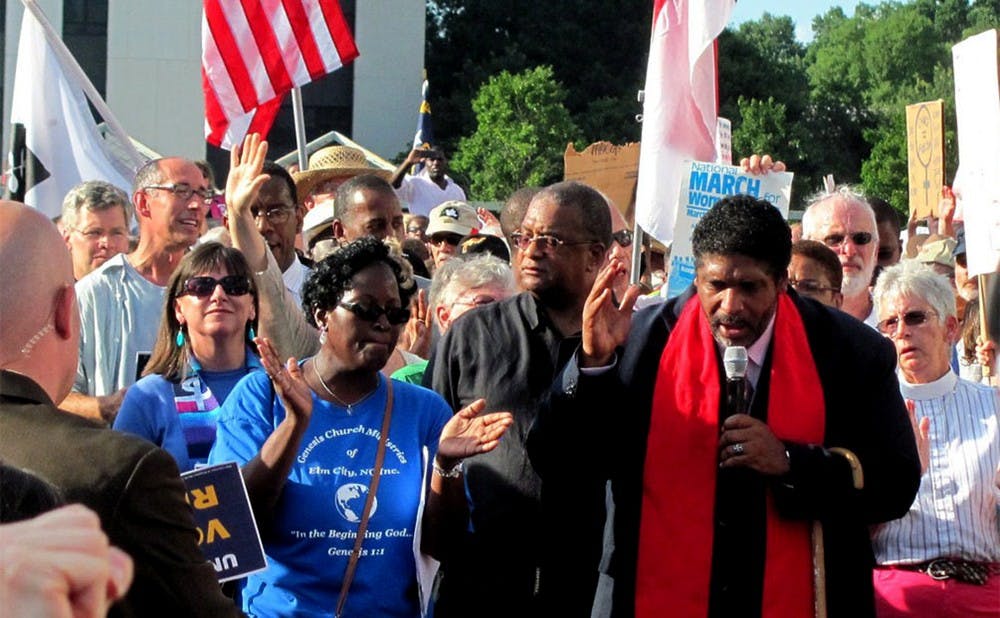Fearing a decrease in voter turnout due to new voting regulations, organizations at Duke, in Durham and across North Carolina are mobilizing voters for the midterm elections this November.
Representatives from Duke Student Government and Duke Political Union met with the director of the Durham County Board of Elections Wednesday afternoon to discuss the impact of the modified voting laws on Duke students and construct a strategy to facilitate student voting in this year's midterm elections.
“Over the next few weeks, our mobilization effort will begin to take place,” said Tanner Lockhead, a sophomore and DSG senator for Durham and regional affairs. "We're optimistic that Duke students will continue to make their voices heard.”
DSG aims to release information online about their voter registration campaign soon. Once a student registers, they will be able to print out their registration form and drop it into one of several registration boxes located across campus. DSG is also aiming to arrange for transportation to the polls because there will not be an on-campus voting site this November.
The N.C. General Assembly passed changes to state voting laws in 2013, eliminating same-day registration and out-of-precinct voting in addition to shortening the early voting period. People registering to vote will also be required have state-approved identification starting in 2016.
“The laws passed in recent years will pose significant obstacles for Duke students to vote in North Carolina in 2016, but it's incredibly important for students to know that voting in this fall's midterm elections will not be drastically impacted,” Lockhead said. “If Duke students are mobilized to vote, there is serious potential to affect the outcome of the election.”
State and national organizations have also been making an effort to educate voters about the new laws and increase turnout. The removal of same-day registration worries Bryan Warner, director of communications at the N.C. Center for Voter Education.
"The concern is that same-day voter registration seems to have been used disproportionately by African American voters,” Warner explained. "These changes may disproportionately affect them, as well as college students."
The NCCVE is using public service announcements and social media to make sure voters are aware of the changes as well as this year's registration deadline.
Labor unions are also launching efforts to encourage voting among their members. AFL-CIO Secretary-Treasurer MaryBe McMillan expressed fears that voters may wrongly assume that they need photo identification to register to vote. The AFL-CIO is focusing on preparing union members, their families and communities for voting in accordance with the new laws.
“You need to make your voices heard and you need to educate others about who passed this law, what’s behind this law,” McMillan said, “Encourage people to get out and vote because that’s what legislators don’t want you to do.”
Democrats allege that these new laws will discourage some groups from voting, especially African Americans and college students, who tend to for Democrats. However, Republicans maintain that the purpose of the changes is to ensure the integrity of the vote and to counter election fraud.
The NAACP and others have taken the issue to court, alleging that the legislation is designed to suppress turnout. A federal district court refused to halt implementation of the law while the case is heard. Challengers to the law have appealed this ruling and are awaiting a decision from a federal appeals court.
Get The Chronicle straight to your inbox
Signup for our weekly newsletter. Cancel at any time.

